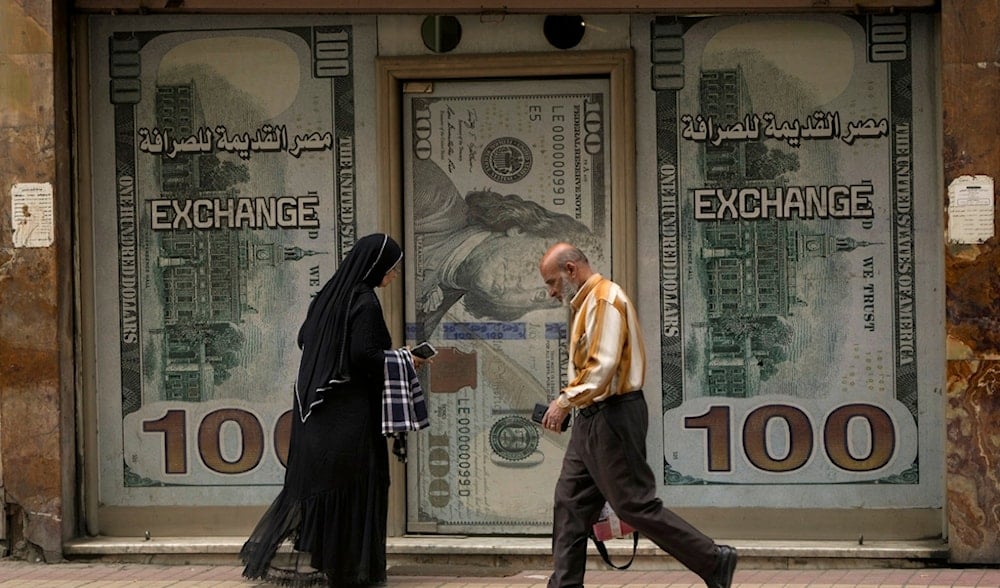Egypt poised for another interest rate cut ahead of economic reforms
Egypt’s central bank is expected to cut interest rates again, easing record-high borrowing costs ahead of new economic reforms. Inflation remains below its 2023 peak, supporting policy flexibility.
-

Egyptians walk past an exchange office in Cairo, Egypt, Wednesday, March 6, 2024. (AP)
Egypt is expected to implement another interest rate cut before the summer, as policymakers balance inflationary risks with the need to stimulate investment and reduce debt-servicing costs.
Despite a slight uptick in inflation over the past two months, the country’s real interest rate, now around 11%, remains one of the highest in the world.
This wide real rate gap gives the Central Bank of Egypt room to reduce its benchmark deposit rate, currently at 25%. Nine economists in a Bloomberg survey all anticipated a rate cut on Thursday, with forecasts ranging from 150 to 300 basis points.
The anticipated move would be Egypt’s second monetary easing this year, following April’s historic cut, its first in five years. That easing followed a 40% devaluation of the Egyptian pound and a record 6-percentage-point rate hike earlier in 2024.
Simon Williams, economist at HSBC for Central and Eastern Europe, the Middle East, and Africa, noted that "it would be a missed opportunity to not cut again now." He pointed to weak growth, tight fiscal policy, and currency stability as reasons the central bank can afford to ease further, according to Bloomberg.
Supporting growth, easing debt burden
A rate cut could help Egypt manage some of the highest debt-servicing costs in the Middle East while encouraging much-needed investment. The policy decision comes in the wake of a broad economic reform agenda backed by an $8 billion loan package from the International Monetary Fund (IMF).
The IMF deal, secured last year, aims to stabilize government finances through structural reforms and subsidy cuts. These reforms are set to intensify in the next fiscal year, beginning in July, when authorities are expected to revise value-added tax rates and possibly raise fuel prices again.
Inflation in Egypt accelerated slightly to 13.9% in April, driven in part by recent fuel price increases. However, this remains far below the September 2023 peak of 38%. Mohamed Abu Basha, head of research at Cairo-based EFG Hermes, said there were “no signs of aggressive pass-through” from recent subsidy cuts, indicating subdued consumer price pressure, according to Bloomberg.
Abu Basha added it is "plausible" the central bank will cut rates this week, then hold steady during its July and August meetings, coinciding with the early months of the new fiscal year.
In its April statement, the Central Bank of Egypt projected a continued decline in inflation through this year and into the next. It reaffirmed a target of 7%, plus or minus two percentage points, by the end of 2026.
However, the IMF has cautioned Egyptian authorities to remain "vigilant" in easing rates, citing global uncertainty and inflationary pressures stemming from events such as the US-China trade tensions and regional instability.
Economists expect Egypt to reduce rates by a cumulative 600 to 800 basis points over the course of 2024, executed in gradual stages.

 3 Min Read
3 Min Read








